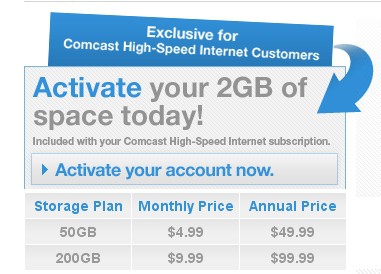
Apple iPhone
AT&T Mobility, the still-exclusive provider of Apple’s iPhone in the United States, is floating trial balloons about the imminent end of “unlimited data” plans for iPhone customers. Although the company has always defined their wireless broadband service as “unlimited” even though the fine print says they really mean “up to 5GB of usage per month,” the mandatory data plan forced on iPhone customers has retained its “unlimited means unlimited” definition. We’ve never verified a customer thrown off of AT&T’s network for using too much data on their iPhone.
AT&T has managed the iPhone as both a success story and a major challenge to its network. People will go to all sorts of trouble to acquire and keep an iPhone, including putting up with less 3G coverage and more congestion-related dropped calls and other service problems in some larger cities.
Considering the enormous revenue boost the iPhone has brought to AT&T, customers might wonder why the company simply doesn’t pour additional money into building more network capacity. AT&T Mobility CEO Ralph de la Vega doesn’t agree.
He believes the answer isn’t going to be found in just upgrading AT&T’s network. Instead, he wants to implement an Internet Overcharging scheme like consumption billing and do away with the “unlimited” plan altogether.
AT&T claims that three percent of smart phone customers consume 40 percent of network capacity, a substantial percentage if compared with the amount of data a mobile broadband dongle can help a laptop or netbook consume. Of course, those numbers are AT&T’s and do not come with independent verification.
For de la Vega, consumption pricing “is inevitable.” That allows AT&T to reduce demand on its network and manage upgrades at a level more comforting on that quarterly financial report.
“What’s driving [high] usage are things like video or audio that plays around the clock,” de la Vega said at an analysts conference. “We have to get to those customers and get them to recognize they have to change their patterns, or there are things we will do to change those patterns.”
Customers forced to ration their usage with the threat of a higher bill can work… for AT&T.
AT&T may be about to test the limits of the iPhone enthusiast. After all, they’ve already been pushed into a two year contract for a premium-priced phone, enrolled in a high priced service plan with a compulsory data package add-on, and have to live with AT&T’s less-than-stellar coverage in several areas. Will AT&T be able to punish its customers further by taking away their unlimited data plan and replace it with consumption billing and see if they’ll break?
We’re likely about to find out.
AT&T wants to embark on a part-conservation, part-education campaign to get customers to reduce usage.
“We need to educate the customer … We’ve got to get them to understand what represents a megabyte of data,” de la Vega says. “We’re improving all our systems to let consumers get real-time information on their data usage.”
That’s the AT&T version of the gas gauge, the usage meter that means more profits for them and less service for you.
A question customers might want to ask Apple and AT&T: If the sole provider of the iPhone in the United States is a hard luck case of an over-congested network and an inability to invest profits to expand it, perhaps it’s time that exclusive contract comes to an end, allowing other mobile providers to ‘share the burden.’ Then customers can decide if AT&T’s rationing, consumption billing, and education campaign is right for them.
 One service the usage cap-happy broadband industry will be certain to threaten is online file backup. Consumers who don’t know any better can easily configure software to back up entire hard drives to a remote hard drive, blowing through an online usage allowance in a matter of days. Even usage allowances as large as Comcast’s 250GB per month are no match for today’s super-sized hard drives.
One service the usage cap-happy broadband industry will be certain to threaten is online file backup. Consumers who don’t know any better can easily configure software to back up entire hard drives to a remote hard drive, blowing through an online usage allowance in a matter of days. Even usage allowances as large as Comcast’s 250GB per month are no match for today’s super-sized hard drives.

 Subscribe
Subscribe




